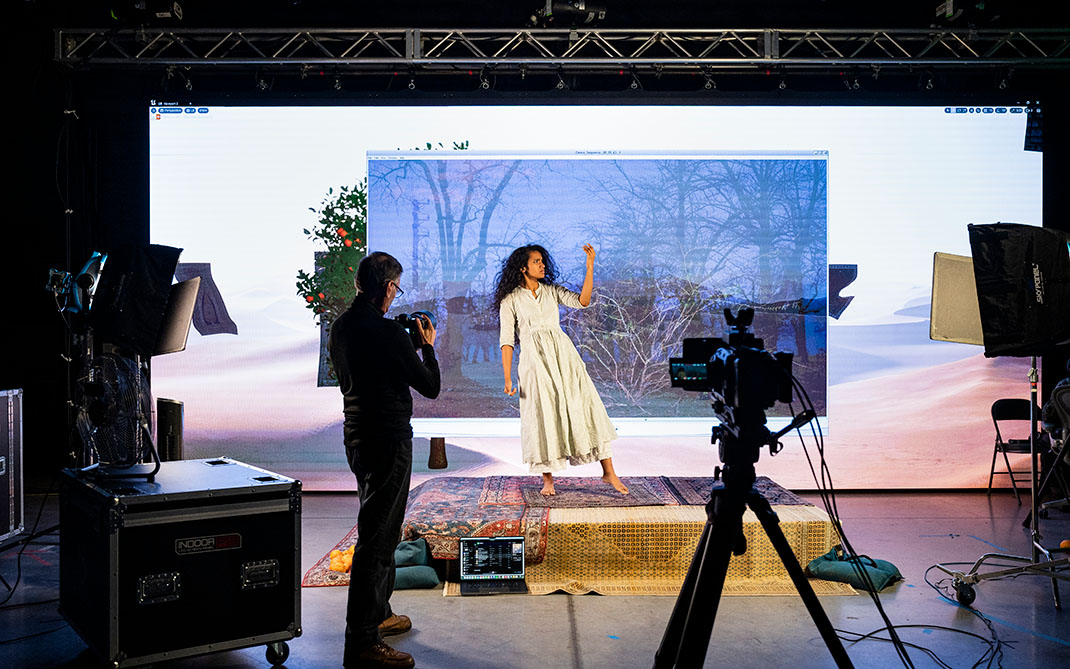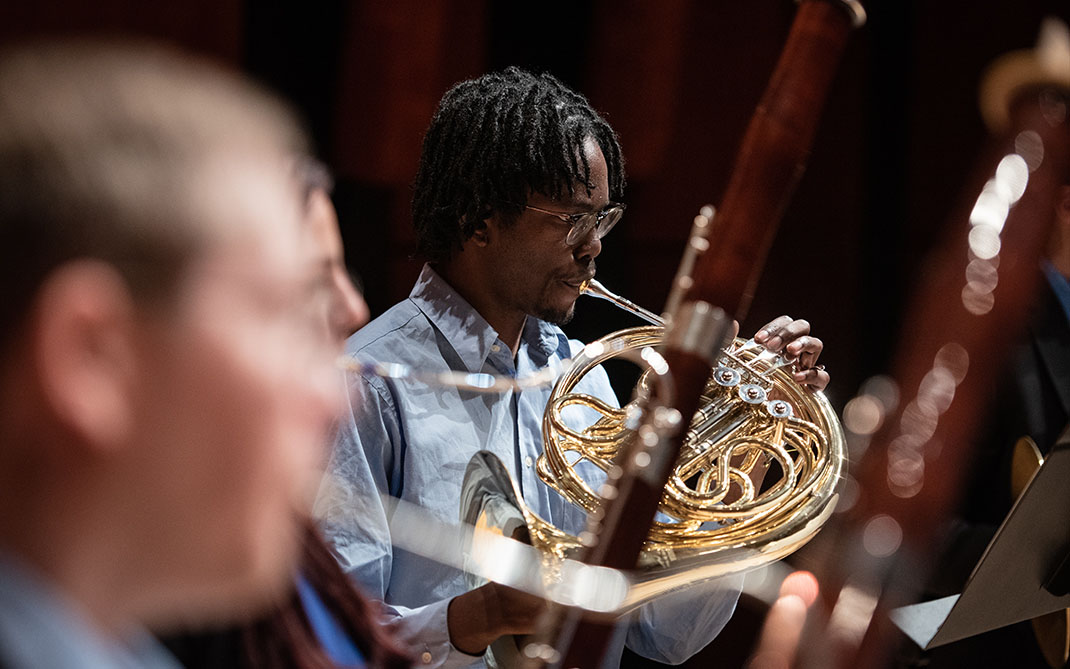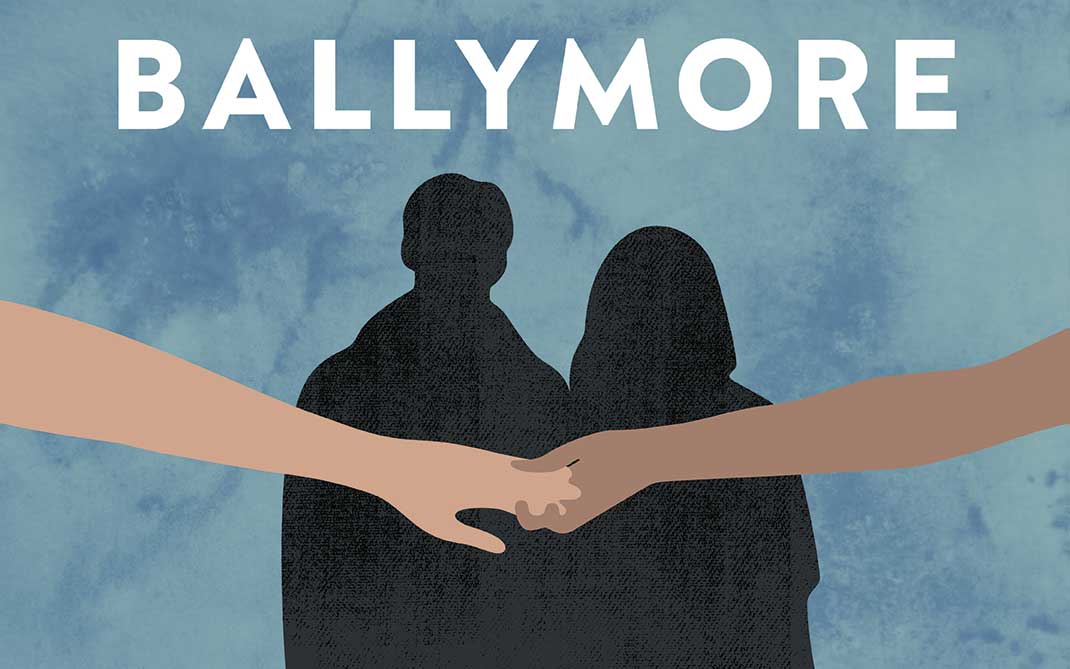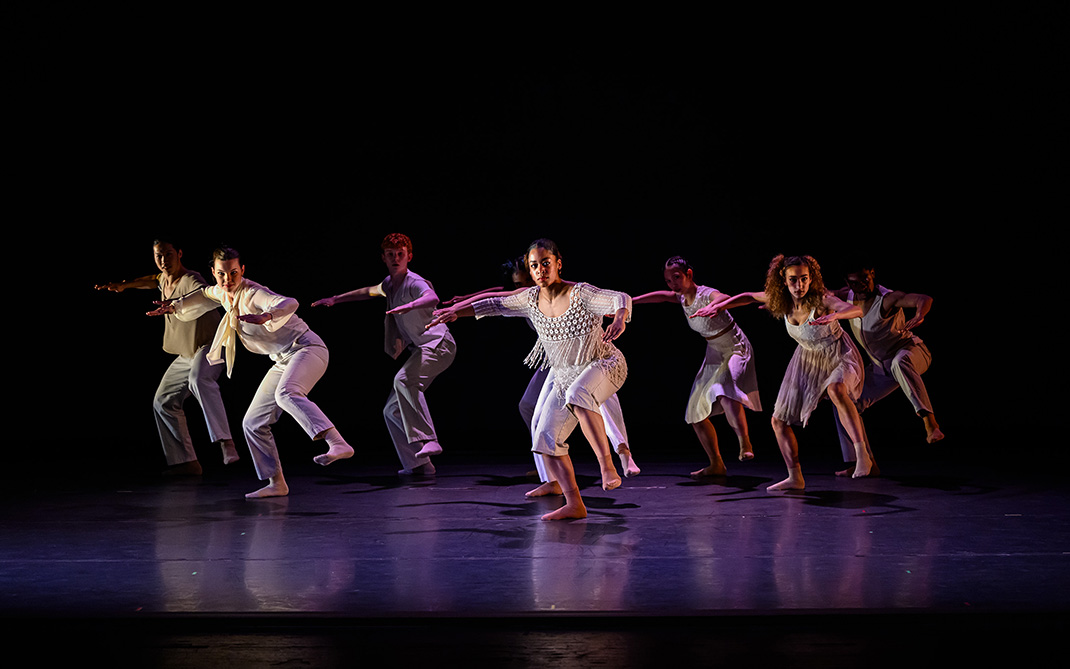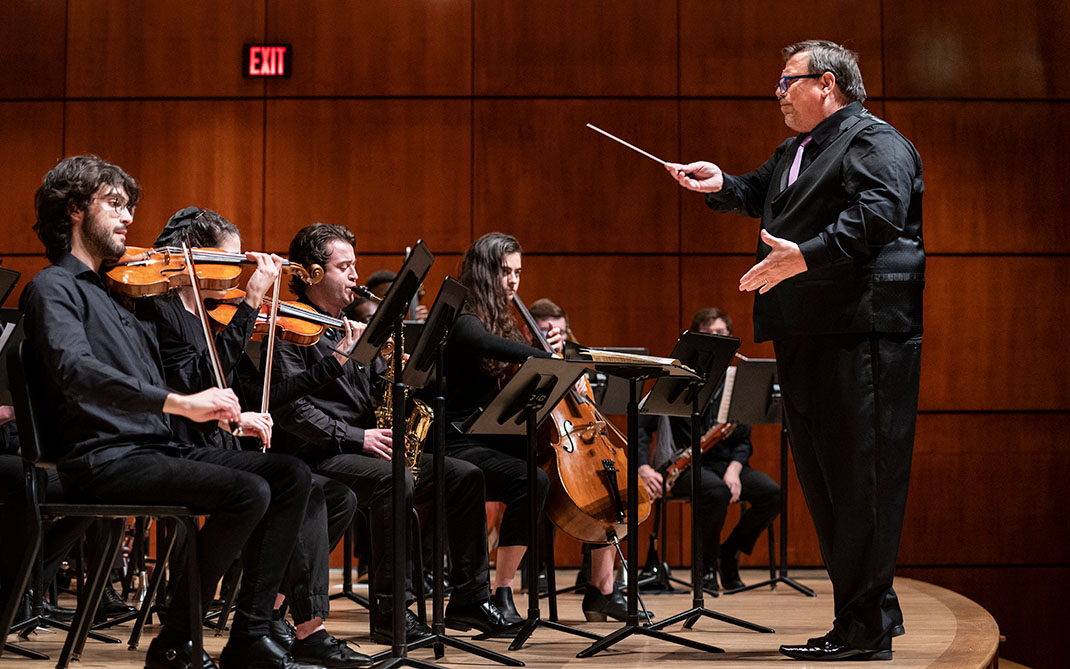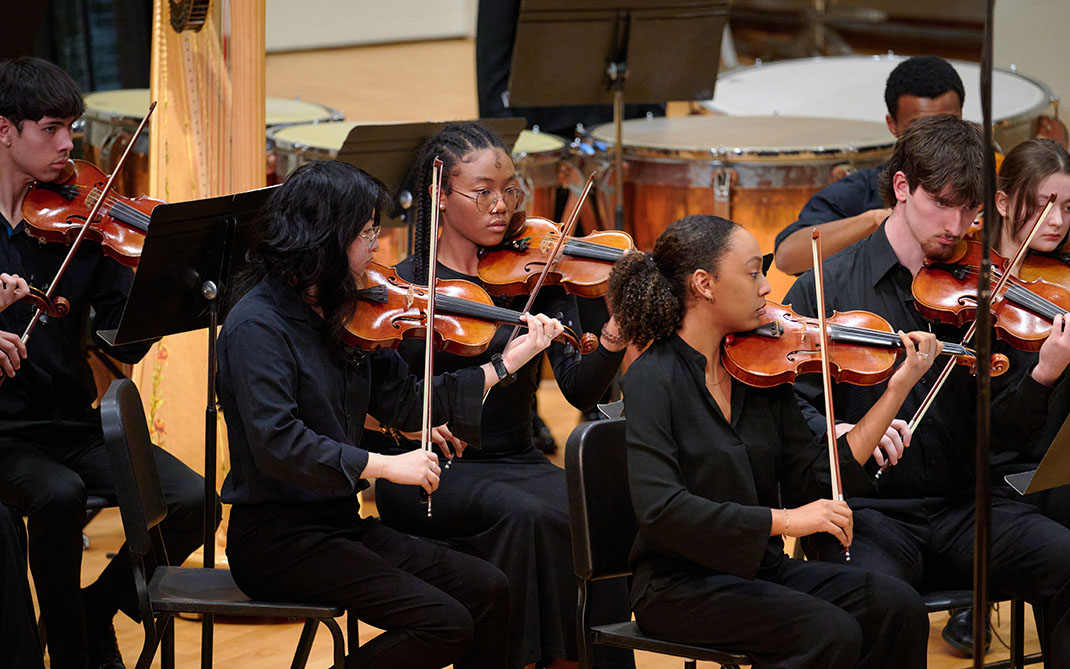See Through My Lens: Creative Writing Chapbook 2024

Poems below were written by students for Ellen Rosenberg's Spring 2024 Poetry Workshop course.
"Mother and Daughter" by Breylin Brown
Mother and Daughter sat side by side on a bench looking out at a great big lake. The water glistened in the lovely spring sun as baby turtles made slight ripples across the surface.
Mother: Sometimes it seems like you like being sad.
Daughter: That’s what you decided to go with? Seriously?
Mother: Well we have been sitting here in silence for the past half hour. That’s all I had.
Daughter: There’s always silence.
Daughter’s fingers grazed gently across the gauze that wrapped around her wrists.
Mother looked at this act, then looked back up to see the fishes gathering at the edge of the lake.
Mother: I guess I just don’t understand the concept of suicide. You’re going to die one day anyway? Why rush it?
Daughter: Rushing things seems like the only option imaginable when you want something so bad it hurts.
Mother: I don’t want for much. Just politeness and good coffee.
Daughter: I want silence. I want steadiness in my heart. I want stillness. Everything would be so amazing if we just had some stillness.
Mother: Stillness is impossible, the Earth keeps revolving around the Sun.
Daughter: I think that’s why people kill themselves.
Pause
Daughter: Or try to.
Beat
Daughter: I think you’re wrong about yourself, about not wanting for much.
Mother: What do you mean?
Daughter: You want so much from everyone. From the waitress serving your pancakes to the woman painting your nails. You have wants that exceed what is humanly possible.
Mother: Those aren’t wants, those are expectations. Everyone has expectations.
Daughter: No one has expectations as high as you, mother.
Mother: Oh, I think there is someone with expectations much higher.
The two hold eye contact for a long beat.
Daughter: If I were to expect my mother to love me, really love me; is that expectation higher or lower than your expectation for me to not kill myself?
Mother: Higher, so much higher.
She looks to the water again waits for a long moment before speaking again
Mother: Your expectation of love is so fantastical. So teenaged girl. You want me to cradle you to sleep like you’re a newborn babe? Hmm? You want me to caress your face and whisper affirmations into your ears when you wake up from a terrible nightmare? You want me to cut the crusts off your sandwich and write notes to put on your mirror and hem your prom dress with my impeccable sewing skills? Grow up. I am here. Here for you, I don’t do that for anyone. You don’t get to define what my love for you looks like just as much as I don’t define for you what your fantasy of life looks like. Stop acting like I am a monster incarnate because I don’t kiss your forehead and tell you a bedtime story every night. Maybe if you stopped thinking of yourself all of these years, you would have enough perspective in your pea-sized brain to realize that there are people who struggle far more than you will ever have the displeasure of understanding. People who actually have horrible mothers that don’t love them and actual reasons for wanting to die. Maybe then you’d save us the wretched experience of being here!
A very long silence between the two follows. Mother has grown so passionate in her talking that she breathes haggardly, like she has run 10 miles nonstop. Daughter stares at Mother with huge, tear-filled eyes. She has dug her nails so far into her palms that she has drawn blood. All that is heard is the wind rustling the trees and the turtles gently lapping through the lake ahead of them.
Daughter: You always know just what words would hurt me.
Nurse enters from behind Mother and Daughter. Interrupting whatever weak apology Mother might have been getting ready to say.
Nurse: (to Mother) Everything is all set up now. She can be led to her room now before her first psychiatric appointment with Dr. Gordon. Since all of the documents are signed, you can leave whenever you want. We understand most parents want to say bye, so you can follow me as I take her to her room. You have about 30 minutes before Dr. Gordon is ready for her.
Mother: That would be grea-
Daughter: Actually she will be leaving now. We already said all we need to say to each other.
Nurse: (hesitantly) Okay…If that’s what you want-
Daughter: (getting up from the bench and grabbing a small suitcase that was next to her feet this whole time) It is.
Nurse leads Daughter offstage to where the mental hospital is, leaving Mother sitting on the bench staring out at the lake.
"Donde Estas" by Martin Collo
You can locate the origin of this question before he became an immigrant. Even before he knew he was a musician. The first time it came to him was back in Buenaventura, trying to find an explanation behind the death of his friends and brothers: their bodies had now become myths, an absence of a physical form, a disintegrating form of matter whose greatness was reduced to the absurdity of common pits.
¿Donde estas? Or Where are you, for those who don’t speak his language, the historical evidence of the degradation of indigenous and black minorities that the Spanish used to settle their empire.
Where are you, my God? Where are you for all these people who suffer?
The question came back every now and then, just on the occasions when he felt his soul was exposed to the dangers of the real world. It had become the bridge between his life in Buenaventura and his illegal immigration status in Paris, France.
That night, he felt he was just a wingless angel suffering the consequences of a lost battle between him and the monstrous personality of The City of Love.
The scenery was quite simple: a repetitive pattern of shiny white bricks that formed an arc divided by the ephemeral trains of the subway. This unlikely performance place for such a musician had become his stage, but today the audience was tough.
Every night he allowed himself to get lost in the beat of his Congas. He allowed his African background to consume his soul and drive the palms of his hands to perform with this Colombian flavor. To him, it tasted like the Pacific, fried fish with coconut rice and a sweet Agua de Panela. It was the voice of the whales who peek out to see the unique landscape where the beach meets the jungle: a mystical place where the spirits of the wise accompany the farmers who fight for their freedom and survival.
Even though his friends (other subway players) truly believed in the connection he had with music, that night the paradox he daily fell into was, for some reason, stronger. What was he going to do after playing? Where was he going to sleep? What was he going to eat? There was no answer.
What he liked to do when these thoughts consumed him, was go back to the Seine River Bridge and remind himself of his brothers who had played in the little theatre right across the corner. Brothers like Gabriel Garcia Marquez, or Violeta Parra.
It was traditional. Every time he walked through the bridge, his congas would break. His response was, to grab his head, scratch his hair, and say “150 Francos” (150 Euros), the prize to fix the cracked leather of his congas; to fix the cracked leather of his pluricultural soul. Playing for a week in the subway station would give him no more than that. He worked for his congas.
This night was different. The cold wind of the winter made France’s monstrous personality shine in its full splendor. Feeling an unprotected victim would now bring back the universal question that was born in his days in Buenaventura.
¿Donde Estas?
He needed to see God. He needed to feel the warmth of her hug, the peace of her hands, the love of her blood. But the only thing he had, was silence.
Tonight his body was not driven by his rationality. He was moved by impulses that his shrinking heart commanded. And standing right on the border of the bridge, he jumped.
And as he went down in the river, the sound was muted, all he could see was a bright light shining over the dark blue water.
If a tree falls, but no one sees it, did it fall? The next morning, silence came back to consume the streets. Everyone kept minding their own business.
There are miracles in this life. But this is special. His eyes slowly opened to see the asphalt that surrounded the river. He does not know how he survived, or who pulled him out of the waters, who brought him back to life. But all he knows is that he saw Colombia, its past, present, and future. He had never felt so connected to the pure dirt that makes up the forests that meet the brown oceans where whales come to meet the spirits of the wise societies that make up the rich and natural environments of his nation.
When he opened his eyes, he knew where God was. She is in his voice. He is the One to bring up the voices of all the brothers he left behind, all the brothers who still looked after him in a mythical place of infinite dimensions after being murdered by the revolutionaries blinded by power. He carried the voices of the victims of the Spanish who built their empire in foreign territories, lands of cultures whose traditions were beyond the understanding of anthropologists. That morning he realized that he had come to Europe to bring his heritage, a summary of cultures that taught France what Salsa sounds like.
"Anthem" by Marissa Derrick
This land is your land, this land is my land,
From California to the South Border.
This land was taken, built by bloody hands.
Tainted and controlled by the foreigners.
With shiny swords and souls of greed, we die.
Fire will catch in heaven’s bright city.
From the ashes, the rising of allies.
To we “animals,” they are the true beasts.
This land that boats arrived with sweet treasures,
Were people of charcoal, with hair of naps.
Pale faces of clouds are my possessor.
We wait for the moment. Tell me to attack.
This land is your land, and never our land,
Don’t speak to us as if you understand.
"There is a World" by Amita Devota
There is a world that exists within fantasy land
Homes and lives that persist despite the people who refuse to understand
Ignorance is bliss and stories can be erased
Thousands of voices reduced to modern slaves
People who left their families
To find a means of sustenance
Jailed by the shores of a country
That promised abundance
This was simply a glimpse
Into the reality we live in
That we will welcome even the worst of things
For fleeting and momentary gratification
One can only hope that things will start to change
That this isn’t just another anecdote in a history pervaded by the acceptance of the
inhumane
"Melanie" by Andrea Estrada
Melanie sits in the middle of her playroom. She plays with her favorite set of toy blocks that she likes to build with. She brings in her dolls and other figurines to add to her world. She creates the rules here. In this small playroom she decides what goes. She makes her dolls fall in love, and has them fight, and has them work 9-5 jobs. She creates her world according to what she knows a proper world to be. It’s simple to her, everything happens as is because that's just the way things are. Her parents get to use excuses like “because I'm the mother” and she must simply listen. Her dad gets to be away all day and come home too tired to play. Her older siblings have to go away for college because what else would they do? Melanie knows exactly what is expected of her at the ripe age of 5. She knows because it’s been made clear to her by everyone around her. She notices that nobody ever stops stressing. Nobody ever stops to ask her what she’s building or how she’s feeling today. She wonders if that’s a thing she should even do. She wonders what would happen if everyone took just one second to feel. Maybe they would stress a little less. Maybe her parents wouldn’t argue as harshly, or maybe they’d have more time to play. She doesn’t understand what the big deal is, and as she gets older no one will explain it to her. And as she tries to figure it out, she’ll begin to be too tired to play. She’ll have too much homework to do. She’ll have to find a job to afford school. She’ll have her own children and argue in front of them. She’ll forget all about the questions she had for the world at 5 years old. Until one day she watches her kids in their playroom, making their dolls argue with each other. And she thinks about the world she has created for herself. The world she’s creating for her children. The stress and everything else suddenly feel so silly. She laughs at the irony and then tears up at the reality. At the thought of letting herself slip into this dreadful mindset. “It’s not that serious,” she realizes. It’s never been that serious. It should never be that serious. That’s the big secret nobody wants to share. She joins her children in the playroom, breaking up the fight their dolls are currently in. She shows her kids how to get them to love each other. She hopes to one day let them in on her little secret about how unserious it all is.
"Two dolls" by Anna Newlin
Two dolls, PENNY and AGGIE, lay in a dollhouse. The bedroom door closes, their human, KATE, has just left. AGGIE lays face down, her hair matted. PENNY has been left sitting upright, hair in a single braid.
AGGIE
(Still face down) God I thought she’d never leave.
PENNY
Don’t talk about her like that, she’s our human.
AGGIE
(Sits up) More like YOUR human. You’re her favorite.
PENNY
I’m sure she likes us both equally.
AGGIE
You’re so shallow, Penny. You think just because she loves playing with you, she loves
playing with all of us.
PENNY
Isn’t that like her job? Why else would she have all of us if she didn’t love playing
with all of us?
AGGIE
You’re fresh out of your packaging, you don’t get it. For fuck’s sake look at your
hair!
You’re done up like a goddamn poodle while I’m over here with a rat’s nest on my head.
No Penny, she doesn’t love me.
AGGIE stands up and walks to the other side of the dollhouse
PENNY
She used to.
AGGIE
(Sarcastically) Wow yeah, thanks for reminding me. I WAS her favorite once upon a
time. Until she got Tina, then Tina was her favorite. Hell, Ken was even a favorite
the
week she got him. And now here you are! Her pride and joy for the month!
PENNY
She still plays with you though. She doesn’t play with Tina because she’s broken.
AGGIE
(Walks over towards PENNY) That’s true, she doesn’t play with Tina because she’s
broken. Terrible thing to happen to a doll.
PENNY
And she still plays with you, so you’re definitely still one of her favorites! (Smiles
supportively)
AGGIE
You’re probably right. Thanks kid. Hey have I ever showed you how well you can see
the
monster trucks from up here?
PENNY
Really?!
AGGIE
Totally! Right from this edge here, you can practically see their interiors!
PENNY
You’re right, I can see that one’s steering whee—
AGGIE pushes PENNY off the ledge. PENNY’s arm snaps as she hits the floor
AGGIE
(Clicks her tongue) Terrible thing to happen to a doll.
AGGIE smirks as she resumes her face down position
"The First and Only Time" by Matalie Nguyen
The first and only time I’ve ever gone horseback riding was in elementary school.
Our school had a local equestrian center come and let the kids in my class have a
go at horseback riding. The horse’s hooves crunched on the orange gravel as the male
instructor led me along the lakeside trail right by the back pickup area for the after-school
car riders. After we all got a turn with the horse, they let it rest under the large
canopy near the kindergarten playground. My class erupted in “ews” as we watched the
horse poop all over the concrete. My teacher let us play on the playground so we wouldn’t
have to watch the horse caretaker clean up the mess.
Yet whenever I recount this memory to my elementary school friends, they tell me this
never happened. There was no horseback riding at Blackland Prairie Elementary School.
We had no orange gravel by the back car rider area. I can’t even remember what year
this occurred. Did it ever happen? Perhaps it did during a school field trip or with
my church camp -- I’ll never know. Often, I seem to recall memories that are so vivid
that they must’ve taken place, only to find out they didn’t.
When I was around six or seven, I got my head stuck between the stair banisters. My
family came and laughed at my predicament as I screamed for help. My mom was taking
a video and my brother, Thomas, told me to turn my head sideways and pull (like in
the movie Bolt). I don’t remember how I got out, but my dad tells me that they had
to drag me out head-first rather than feet-first. My family also tells me this took
place in California, where I lived for the first five years of my life. I imagined
this happening at the top of the stairs of our house in Texas. Why? How? Is it because
I remember our Texas home better than the one in California? Do I only know the memory
because I was told this story after we moved? How many other bits of my life have
I made up in my head, even if there’s a kernel of truth in them? What about when my
older sister made YouTube videos with me in our California home’s living room? What
about when my mom painted my nails a bright red to go to the Vietnamese Catholic daycare?
It’s a bit frightening to know that your most vivid memories-- the ones you know and
are a part of you -- aren’t what you thought they were.
Now, I try to document my most precious memories through journaling, photographing,
or videotaping. I want to know that they exist. I want to know who was there, what
everything looked like, and what my mind thought when they happened. For some reason,
I like to think that there’s proof -- therefore that moment in time truly exists.
That truth reassures me.
"She Reaches Out" by Frances O'Malley
She reaches out into her memory, grasping for anything that might resemble something useful. She panics as the gang in front of her reach for their weapons. This cannot be happening. Her hands fly to her head trying to protect everything from spilling out, but she can’t control it. Bang. The sound of the gunshot pierces her ears as the world freezes in front of her. It all happens in slow motion. Just like it always does. Just like it always has. She wishes that her teacher would just come back, if only to calm the chaos in her mind. The weapons turn on their owners, driving full force into each one of their heads. Skulls splinter, and she closes her eyes as she glimpses what she can only assume are eyeballs flying outwards onto the dark pavement. Bile rises in her throat, and she spits it out before turning to run.
"The Girl" by Teresa Pham
By the time General Li Haku and his army passed through one of the many brothels of Dongguan to the inked address in the letters, the girl was the only one left in that tiny shack alive.
The air was heavy, the floor rotted. Small bones littered the floor right next to the empty mouse traps surrounding the bed. The meat of the mice left enough energy for the girl to grasp the hanging hand of her dead mother, who laid comfortably on the twin sized mattress.
Her mother died last morning. The girl laid with her, watching the fat of her mother’s face sink, the bones protruding. Their stomachs growled for days until the third night when the stomachs started to eat their innards. Her mother had no last words, silently gasping until she stilled. Her mouth gaped open and eyes stared dully at the ceiling. Only then, when her mother died, a source of food came into the house in the form of rodents and flies. The girl tried to swat the flies swarming around the corpse, but it felt futile, as the more she killed, another swarm would replace the last one, eating up her mother.
No one from the Dongguan Red District batted an eye when an officer would break into a poor prostitute’s home. Eyes would stare, though, when the right-hand man of the emperor knocks down the door of a shed in the middle of the day. General Li didn’t need to search for much, when everything he needed to see was packed tightly in one room.
The girl’s violet eyes dilated as a burst of light shined through the house. She couldn’t bring herself to care when a tall, armored man marched over while she sat unmoved on the rotten floorboards beside her mother. He loomed over them and stared into her eyes for a long moment. As if he didn’t care or notice the dead woman lying on the bed, all of his attention was on the starving girl, which caused her to wonder if this man came to kill her.
“You have the same eyes,” he commented.
She replied, heaving, any muscles left on her face to scrunch in confusion.
General Li knelt beside the bed to shove a flask down her throat. The water rushed in too fast, and it burned to swallow as she coughed up the remaining water she couldn’t drink.
“How are you feeling?” He asked.
She heaved again, clearing her throat of water and answered, “It hurts. Everything hurts…”
“Good. You can speak.” General Li slipped the flask back in his satchel. “Pack anything you can hold. The emperor would like a word with you."
"Hell Hole" by Kara Sparks
A Baptist church in the rural south. The church is crowded this morning. Doc Peters is sitting on a pew, glancing around at the other church patrons. He continues to glance at Dr. Jen Hernandez, sitting next to him.
PETERS
Forgive me ma’am, I don’t believe I’ve ever seen you in the church house before.
HERNANDEZ
Oh…Yes.
(Hernandez turns her attention back to the pulpit. However, Peters is far too eager
to make conversation and has turned to face her.)
HERNANDEZ
This is my first time at a Sunday service since I was about twelve years old.
PETERS
Oh you don’t say? Well how ‘bout that. If there’s any blessing God’s gonna give in
disguise along with crisis it’s reuniting his children with the church.”
(Hernandez nods politely, however she still attempts to end the conversation by not
acknowledging it)
PETERS
The name’s Doc Peters, I’m sure you must be new in town if you haven’t heard it yet.
(He laughs at himself and extends his hand to Hernandez, who shakes it)
HERNANDEZ
I’m afraid you’re correct, I am new. Dr. Hernandez.
PETERS
Oh you’re a doctor now?
HERNANDEZ
I apologize, are you not?
PETERS
Oh they’ve been calling me Doc ever since I needed those old soda bottah glasses just
to see my own fingers! (he laughs) While we wait on Pastor Jackson to get onstage
I gotta ask what kinda doctor are ya?
HERNANDEZ
I’m a psychiatrist.
PETERS
(PETERS demeanor shifts slightly) Oh so you’re not, you’re not out there sewin people
up then, nah you’re doing that brain work. You know, I don’t tend to believe in all
that sorta, uh, therapy thing, but on a count a this hell hole I can sorta see why
the emotion…stuff, is ya know. Important
HERNANDEZ
Yes. The hell hole is the topic of most of my recent appointments. I actually saw
it on the news and felt this sort of, pull, like my work was needed here. Most of
my patients have shared your mentality, however they’ve all seemed to find real stability
in my sessio-
PETERS
That was the hand of god it was! Now doesn’t that just sound like our Heavenly Father!
A good old-fashioned pull to get your shrinkin’ down here!
HERNANDEZ
God, pull, moral conscience, yes. absolutely a possibility…Now how have you been reacting
to the hell hole? It’s a very traumatizing time.
PETERS
How have I been reactin’? Well. To be quite frank with ya, take a look around. I ain't
seen this church this crowded since the passing of missus Lucy Smith in that shooting
a couple years back.
HERNANDEZ
Oh…yes, nothing like fear to create believers.
PETERS
An nothin like a crisis to make you money.
HERNANDEZ
I never…no, that’s incredibly incorrect. It’s my job to help people.
PETERS
No, God’s helpin people. He’s showin’ all them sinners what's in store for them if
they don't repent.
HERNANDEZ
Do you hear yourself? That's sadistic!
PETERS
And what are you tellin’ them? Two hundred dollars and you’ll make them forget about
the hole of lava and fire in the middle of town?
HERNANDEZ
It's not about forgetting, it's about coping. And just because there’s not a scientific
explanation now doesn’t mean that there won’t be one soon-
PETERS
So why are you in the church house today?
HERNANDEZ
Excuse me?
PETERS
Why are you in the church house today? Just wonderin’. If you don’t feel so keen on
God an all.
HERNANDEZ
Because -
(Suddenly, the church doors fly open and Pastor Jackson sprints in towards the pulpit)
PASTOR JACKSON
(breathlessly) THE HOLE TO HELL IS ERUPTING STONES ON FIRE. I must cancel service
today to address the much larger concern, thank you for your patience.
(a rumble is heard that shakes the church, people begin to panic and run out the doors)
PASTOR JACKSON
Is anyone here a doctor?!
PETERS
(pointing to Hernandez) SHE IS – oh wait no wrong kind.
HERNANDEZ
(determined, pushes past PETERS to the front of the church) I have medic training,
I can help as much as I can.
PASTOR JACKSON
Come with me.
(JACKSON and HERNANDEZ shove past the crowd to exit the church.)
"Life With Linda" by Madison Wilson
“Our relationship started out tumultuous, to say the least. I mean, one day she wasn’t there, and the next, it felt like she was glued to me for every waking moment. Even during the moments when sleep was supposed to offer solace. Initially, my parents thought I had anger issues; hence, they introduced me to therapy, but that proved futile because I don’t have anger issues. I have Linda.” Arthur appears to have grasped the essence, but understanding these evaluators is akin to deciphering hieroglyphs. They listen intermittently, sometimes they scribble notes, sometimes they don't. Occasionally, they prescribe exercises and address you as if you're intellectually challenged. They portray life as a walk in the park mastered by everyone else, leaving you lagging. So far, Arthur listens without jotting down notes. He might belong to the breed that nudges you toward someone wielding a prescription pad. Linda detests prescriptions. She has no desire to vacate; she wants to linger, residing rent-free in my mind until either one of us calls it quits or I opt for a lobotomy.
“The thing is, though," I commence cautiously, “Once I grew accustomed to Linda, life sans her became unfathomable. Originally, it was ghastly, grappling with incessant stress over trivialities, and paralyzed by the dread of social interactions.” I sense Arthur bracing for the anticipated “but,” and I'm taken aback by his abstention from inane questions, thus I proceed. “I perceive Linda akin to a superpower at this juncture. She ensures I meet deadlines, she's perpetually prepared for worst-case scenarios, and she possesses an unexpected…wit.”
“So, correct me if I’m wrong,” Arthur probes, initiating his initial assessment of my predicament. “You acknowledge that Linda is a significant source of stress in your life, yet you've grown dependent on her?” Arthur concludes the inquiry devoid of judgment, and though it's part of his professional obligation, I'm impressed. I nod, and Arthur continues, “Given this, do you genuinely wish to rid yourself of Linda? Are you willing to exert the effort necessary to silence that incessant voice in your head?” Arthur does not mince words.
The intriguing revelation about Linda is the more time I’ve spent entangled with her, the more she finds to fret over. Gradually, I’ve adapt and honed my coping mechanisms because despite the occasional idiocy of therapists, some forms of therapy yield results. Consequently, Linda must unearth new avenues to torment. I'm not yet prepared to confide this to Arthur; hence, I articulate, “I believe I harbor anxiety not only about who I'd be without Linda but also about all the potentials I'll never explore with her.” Linda's voice reverberates loudly, yet as I voice this sentiment, she momentarily retreats into the background. As if he too can sense the power in the words I just said, Arthur lets the silence hang in the air before asking, “Are you ready to explore those potentials?” And it feels like a weight lifts off my shoulders when I reply “Yes.”
"Pierce" by Patrick Zeigler
Pierce had never been so free. He torched that car, left that damn town and didn't plan on going back. The train is riding through some of the most beautiful country, great open gorges, towering trees, and vibrant green vistas being washed over by a clementine sky as the sun sets. In this moment Pierce can only sit in amazement at the world that rushed by him, a world he thought he was destined to never meet. As the train clicks and clacks on by, Pierce thinks about the small world he left behind, and what it had cost him to leave that world. In Jamesville there wasn't much to do. The main street was littered with closed businesses, pushed out by the Walmart and Dollar General down the road. The main attraction to Jamesville was that it used to be the basket weaving capital of America, the factory had of course long since been closed but lay open as a small museum. Most families had moved out after the local economy was drowned out. Pierce had graduated from Jamesville High in a class of 28. The school was near Oldsman hill, named for Pierce's great great grandfather Seamus Oldsman. The Oldsman's had raised generations in Jamesville. Pierce never liked the town, he was the black sheep. He spent most of his free time trying to learn everything about anywhere besides Jamesville, this had sparked his love for anthropology and world history. His dad would've preferred he take an interest in mechanics so he could get "a real man's job" after high school and so he could help with the car. That damn car. Pierce's dad had a 1956 Pontiac Star Chief that he took care of as the son he wish he had. Pierce's mother gave birth to him and died while giving birth to his sister Aggie. His dad was put in a situation out of his own personal hell, a son who couldn't hold a wrench to save his life and a daughter, a damn daughter. Pierce had never left that town, all the money one might save for college or vacations for the kids were funneled right into the car or right into the pockets of the bookie at the local bar. All his life Pierce had been told to hold his head high and act a certain way all "because he was an Oldsman, and one day this town will be his". As he got older the tension was even worse, and it all boiled over. That night was the culmination of years of anger and disdain. Pierce knew it had to come one way or another but he never knew what he would have to do to protect himself and his dreams.
